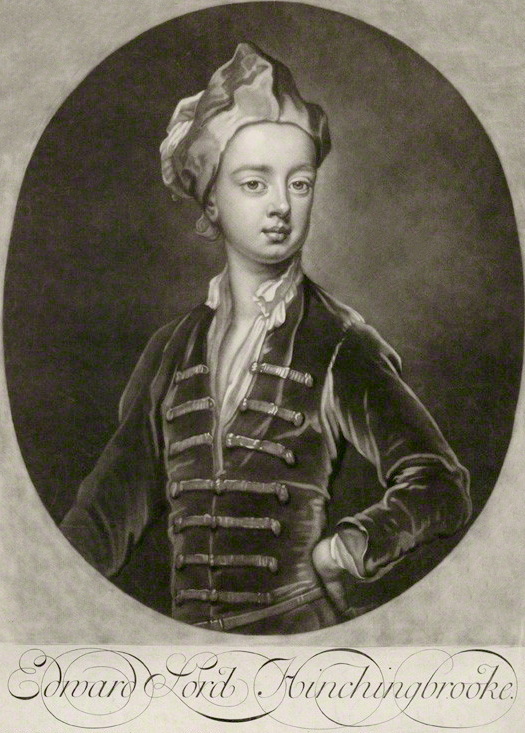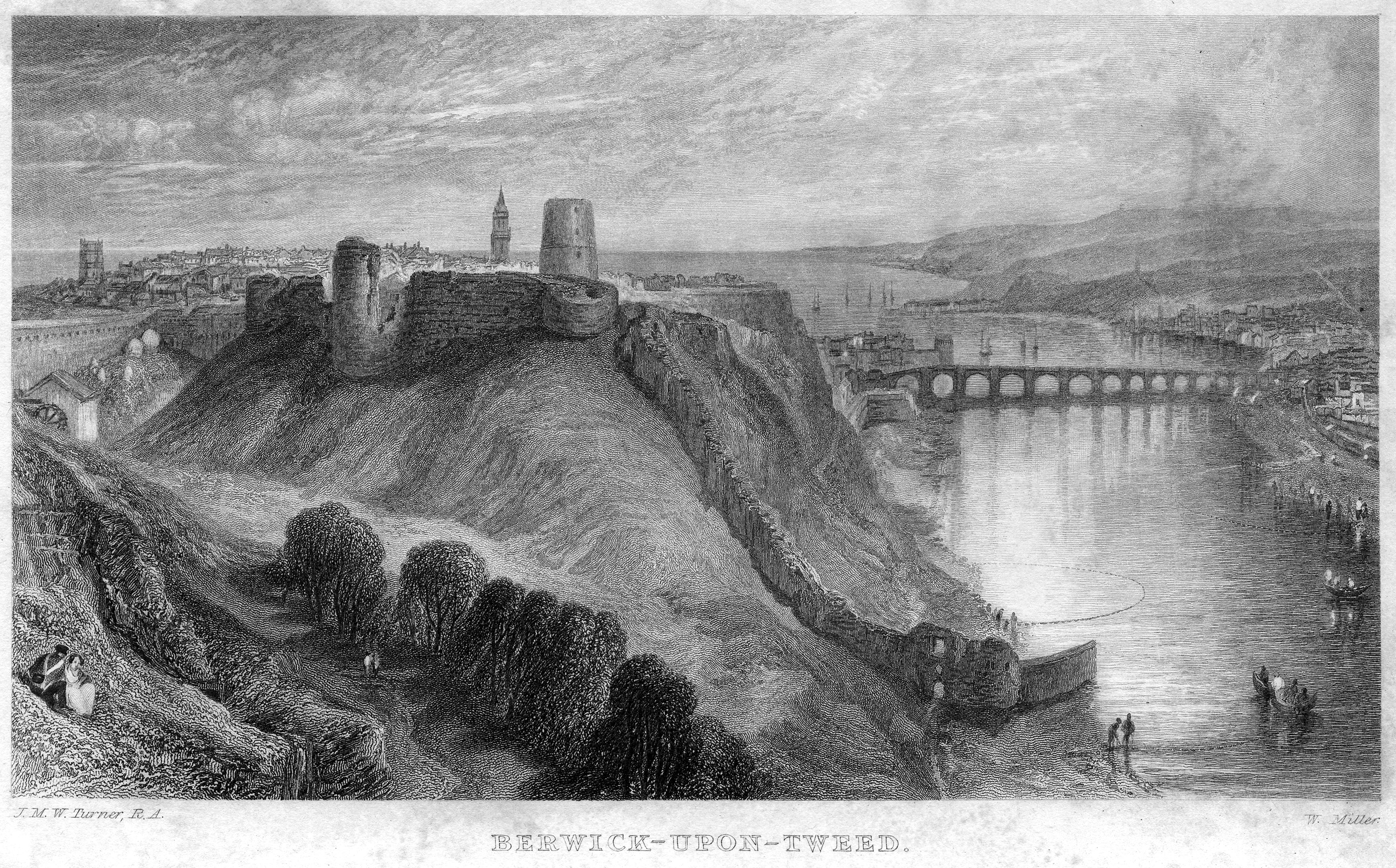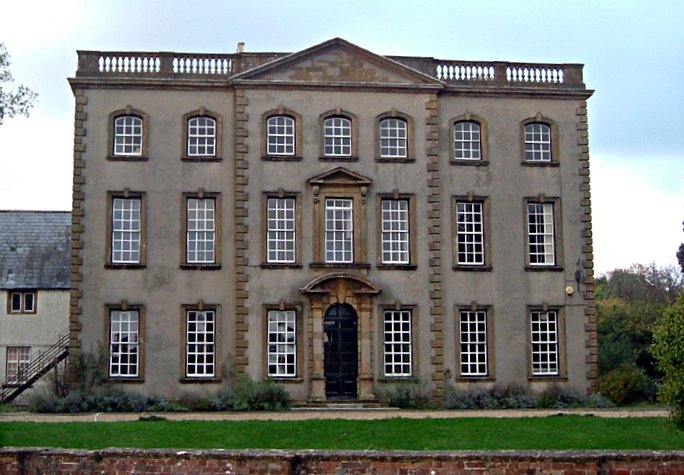|
Edward Montagu, Viscount Hinchingbrooke
Edward Richard Montagu, Viscount Hinchingbrooke (7 July 1692 – 3 October 1722) was a British Army officer and politician who sat in the House of Commons from 1713 to 1722. Hinchingbrooke was the eldest son of Edward Montagu, 3rd Earl of Sandwich and his wife Elizabeth, daughter of the John Wilmot, 2nd Earl of Rochester, Earl of Rochester. His mother kept his father, who was generally believed to be insane, much confined, leaving Hinchingbrooke to carry out the public business of his family. On 12 April 1707, at the age of 14, Hinchingbrooke married Elizabeth Popham (died 20 March 1761), the daughter of Alexander Popham (died 1705), Alexander Popham of Littlecote, Wiltshire (a grandson of Colonel Alexander Popham). After a tour of the continent in 1708, he was given command of a troop in Richard Temple, 1st Viscount Cobham, Sir Richard Temple's Regiment of Horse for the 1709 campaign in Flanders. During this time, Hinchingbrooke was one of the infamous Mohocks, and was arrested ... [...More Info...] [...Related Items...] OR: [Wikipedia] [Google] [Baidu] |
37th (North Hampshire) Regiment Of Foot
The 37th (North Hampshire) Regiment of Foot was a line infantry regiment of the British Army, raised in Ireland in February 1702. Under the Childers Reforms it amalgamated with the 67th (South Hampshire) Regiment of Foot to become the Hampshire Regiment (later the Royal Hampshire Regiment) in 1881. History Early years The regiment was raised in Ireland by Lieutenant-General Thomas Meredyth as Meredyth's Regiment in February 1702. It embarked for the Netherlands in May 1703 and fought under the Duke of Marlborough at the Battle of Schellenberg in July 1704,Whitting, p. 3 the Battle of Blenheim in August 1704 and the Battle of Ramillies in May 1706Whitting, p. 6 as well as the Battle of Oudenarde in July 1708 and the Battle of Malplaquet in September 1709 during the War of the Spanish Succession.Whitting, p. 7 The regiment embarked for Canada in 1711 as part of the Quebec Expedition but lost 8 officers and 253 men when the ships in which it was sailing foundered on the rocks on th ... [...More Info...] [...Related Items...] OR: [Wikipedia] [Google] [Baidu] |
John Proby (died 1762)
John Proby (c. 1698 – 15 March 1762) was an English Member of Parliament for Huntingdonshire (1722–27) and Stamford (1743–47). Life Proby was the son of William Proby of Elton Hall, Huntingdonshire and formerly of Fort St George, Madras, who was son of Charles Proby, and a remote heir of Sir Peter Proby through his cousin John Proby. John Proby died in 1710, then his daughter Frances in 1711, and William Proby inherited. He was also heir to his paternal grandfather, Emmanuel Proby who was the fourth son of Sir Peter Proby. Charles Proby was a close ally of Sir Edward Winter in the power struggles in Madras of the 1660s. He predeceased Dorothy his wife, who died in 1685; he is said to have been living in 1684. He had another son, Charles, who became rector of Tewin, and there was a daughter, Elizabeth, who married Gabriel Roberts at Fort St. George in 1687. William Proby went to Fort St George, Madras as an employee of the East India Company, and was a writer there in ... [...More Info...] [...Related Items...] OR: [Wikipedia] [Google] [Baidu] |
Robert Piggott
Robert Pigott (1665–1746), of Chetwynd, Shropshire and Chesterton, Huntingdonshire, was an English landowner and Whig politician who sat in the House of Commons between 1713 and 1741. Early life Pigott was baptized on 24 October 1665, the eldest son of Walter Pigott of Chetwynd and his second wife Anne Dryden, daughter of Sir John Dryden, 2nd Baronet of Canons Ashby, Northamptonshire. He succeeded his father at Chetwynd in 1669. He matriculated at Christ Church, Oxford on 5 December 1681, aged 16, and was admitted at Inner Temple in 1683. By a marriage settlement dated 15 May 1695, he married Frances Ward, daughter of Hon. William Ward of Willingsworth Hall, Sedgeley, Staffordshire. Career Pigott served as High Sheriff of Shropshire for the year 1696 to 1697, and also became a deputy-lieutenant for Shropshire. He succeeded to the Huntingdonshire estates of his uncles John Dryden in 1708 and Erasmus Dryden at Chesterton in 1710. With his landed wealth, he became High Sher ... [...More Info...] [...Related Items...] OR: [Wikipedia] [Google] [Baidu] |
John Bigg (died 1748)
John Bigg (died 1748), of Grafham, Huntingdonshire (now in Cambridgeshire) was a British politician who sat in the House of Commons from 1715 to 1734. Bigg was the only son of John Bigg, MP of Grafham and his wife Frances Pedley, daughter of Sir Nicholas Pedley, MP of Huntingdon and his first wife Lucy Bernard, daughter of Sir Robert Bernard, 1st Baronet, MP of Huntingdon. He was exon (an officer rank) of the Yeomen of the Guard from 1689 to 1718. He succeeded his father to Grafham after 1708. Bigg was returned unopposed as Member of Parliament for Huntingdonshire on the interest of the Duke of Manchester at the 1715 general election. He voted with the Administration on all occasions in that Parliament. He was returned again unopposed in 1722 and in 1727. He voted against the Government on the army in 1732 and on the repeal of the Septennial Act in 1734. He retired from Parliament in 1734 . Bigg died unmarried on 24 March 1748, and left his estates to his sister L ... [...More Info...] [...Related Items...] OR: [Wikipedia] [Google] [Baidu] |
Roger Handasyde
Lieutenant General Roger Handasyd, also spelt Handaside, (11 March 1689 – 4 January 1763) was an English military officer and Member of Parliament for different seats between 1722 and 1754. Often cited as one of the longest serving officers in British military history, in reality he saw little active service. First commissioned in 1694 at the age of five, he was too young for the 1689-1697 Nine Years War and spent most of the 1701 to 1713 War of the Spanish Succession on garrison duties in Jamaica. Appointed colonel of the 22nd Foot in 1712, he transferred to the 16th Foot in 1730, a post he retained until his death in 1763. Described by a contemporary as a 'bitter Whig', he entered Parliament in 1722 for Huntingdon, a seat he held until 1741. At the outbreak of the Jacobite rising of 1745, he briefly succeeded Sir John Cope after the Battle of Prestonpans as Commander-in-chief, Scotland. In early November, he entered Edinburgh unopposed and was replaced by Henry Hawley in ... [...More Info...] [...Related Items...] OR: [Wikipedia] [Google] [Baidu] |
Francis Page (judge)
Sir Francis Page (1661 – 19 December 1741) was an English judge and politician who sat in the House of Commons from 1708 to 1713. Page was the son of Nicholas Page, vicar of Bloxham, Oxfordshire from 1663 to 1696. He entered Inner Temple in 1685 and was called to the bar in 1690. He married Isabella White of Greenwich, Kent on 18 December 1690. In 1704 he became Serjeant-at-law. He made a second marriage to Frances Wheate daughter of Sir Thomas Wheate, 1st Baronet on 11 October 1705. Page was a trustee for the estates of the 3rd Earl of Sandwich, and so had access to the Montagu interest at Huntingdon. He was returned as Member of Parliament for Huntingdon in the 1708 general election. He was classed as a Whig, but there is some confusion between his activities and those of another Page in the House of Commons. He stood down at the 1713 general election in favour of Lord Hinchingbrooke who had now attained his majority. He does not appear to have sought an alternative seat th ... [...More Info...] [...Related Items...] OR: [Wikipedia] [Google] [Baidu] |
Edward Wortley Montagu (diplomat)
Sir Edward Wortley Montagu (8 February 167822 January 1761) was British Ambassador to the Ottoman Empire, husband of the writer Lady Mary Wortley Montagu and father of the writer and traveller Edward Wortley Montagu. Son of Sidney Wortley Montagu and grandson of Edward Montagu, 1st Earl of Sandwich, Wortley Montagu was educated at Westminster School, Trinity College, Cambridge (1693) and trained in the law at the Middle Temple (1693). He was called to the bar in 1699 and entered the Inner Temple in 1706. He was best known for his correspondence with, seduction of, and elopement with Mary Pierrepont, daughter of Evelyn Pierrepont, 1st Duke of Kingston-upon-Hull. They married in 1712. Edward succeeded his father in 1727, inheriting Wortley Hall, near Barnsley in South Yorkshire. Edward was a prominent Whig politician, and was MP for Huntingdon before eventually becoming a Lord Commissioner of the Treasury from 1714 to 1715. He made Ambassador to the Ottoman Empire and electe ... [...More Info...] [...Related Items...] OR: [Wikipedia] [Google] [Baidu] |
Sidney Wortley Montagu
Sidney Wortley Montagu (28 July 1650 – 1727), of Wortley, Yorkshire and Walcot, Northamptonshire, was a British coal-owner and Whig politician who sat in the English House of Commons, English and House of Commons of Great Britain, British House of Commons between 1679 and 1727. He was one of the leading coal owners in the North-East and a member of powerful coal cartels. Although he served in Parliament over a long period, his contributions there were limited. Early life Montagu was the second son of Edward Montagu, 1st Earl of Sandwich, MP, and his wife Jemima Crew, daughter of John Crew, 1st Baron Crew of Stene. As his father's favourite child, he received a more liberal education than his younger brothers. He was educated at Twickenham under Dr Fuller by 1660 and attended the académie du Plessis, Paris from 1662 to 1664. He accompanied his father at the Battle of Vågen in 1665. Between 1666 and 1671, he travelled abroad in Flanders, Germany, Italy and France.and Spain whe ... [...More Info...] [...Related Items...] OR: [Wikipedia] [Google] [Baidu] |
Francis Seymour, Of Sherborne, Dorset
Francis Seymour (1697 – 23 December 1761), of Sherborne House, Dorset, was a British landowner and Tory politician, who sat in the House of Commons from 1732 to 1741. Seymour was the second son of Sir Edward Seymour, 5th Baronet and his wife Letitia Popham. In 1728, he succeeded to the estates of his paternal great-uncle Henry Seymour Portman MP, which included Sherborne House. He married on 30 July 1728 his cousin Elizabeth Popham, Dowager Lady Hinchingbrooke (died 20 March 1761), daughter of Alexander Popham, of Littlecote, Wiltshire, MP, and great granddaughter of Colonel Alexander Popham. Seymour was returned as Tory Member of Parliament for Great Bedwyn at a by-election on 29 April 1732. At the 1734 British general election he was elected in a contest as MP for Marlborough on the Bruce interest. He did not stand again in 1741. On all recorded occasions, he voted against the Administration of Walpole. Seymour died on 23 December 1761, leaving two children: *Mary S ... [...More Info...] [...Related Items...] OR: [Wikipedia] [Google] [Baidu] |
William Montagu (MP)
William Montagu may refer to: *William Montagu, 2nd Baron Montagu (c. 1285–1319), English peer, soldier and courtier *William Montagu, 1st Earl of Salisbury (1301–1344), English nobleman *William de Montagu, 2nd Earl of Salisbury (1328–1397) *William Montagu, 2nd Duke of Manchester (1700–1739) *William Montagu, 5th Duke of Manchester (1771–1843), British peer, soldier, colonial administrator and politician *William Montagu, 7th Duke of Manchester (1823–1890), British peer and Member of Parliament *William Montagu, 9th Duke of Manchester (1877–1947), British peer and politician * William Montagu (younger) (1652–1691), English MP for Midhurst and Stockbridge, imprisoned for debt *William Montagu (judge) (1618–1706), British judge * William Montagu (MP) (c. 1720–1757), British politician for Huntingdonshire and Bossiney *William Augustus Montagu (c. 1785–1852), British military officer *William Augustus Montagu (MP) (1752–1776), British politician *William Mont ... [...More Info...] [...Related Items...] OR: [Wikipedia] [Google] [Baidu] |
John Montagu, 4th Earl Of Sandwich
John Montagu, 4th Earl of Sandwich, PC, FRS (13 November 1718 – 30 April 1792) was a British statesman who succeeded his grandfather Edward Montagu, 3rd Earl of Sandwich as the Earl of Sandwich in 1729, at the age of ten. During his life, he held various military and political offices, including Postmaster General, First Lord of the Admiralty, and Secretary of State for the Northern Department. He is also known for the claim that he was the eponymous inventor of the sandwich. Biography Early years John Montagu was born in 1718, the son of Edward Montagu, Viscount Hinchingbrooke. His father died when John was four, leaving him as his heir. His mother soon remarried and he had little further contact with her. He succeeded his grandfather as Earl of Sandwich in 1729, at the age of ten. He was educated at Eton and at Trinity College, Cambridge, and spent some time travelling, initially going on the Grand Tour around Continental Europe before visiting the more unusual dest ... [...More Info...] [...Related Items...] OR: [Wikipedia] [Google] [Baidu] |






